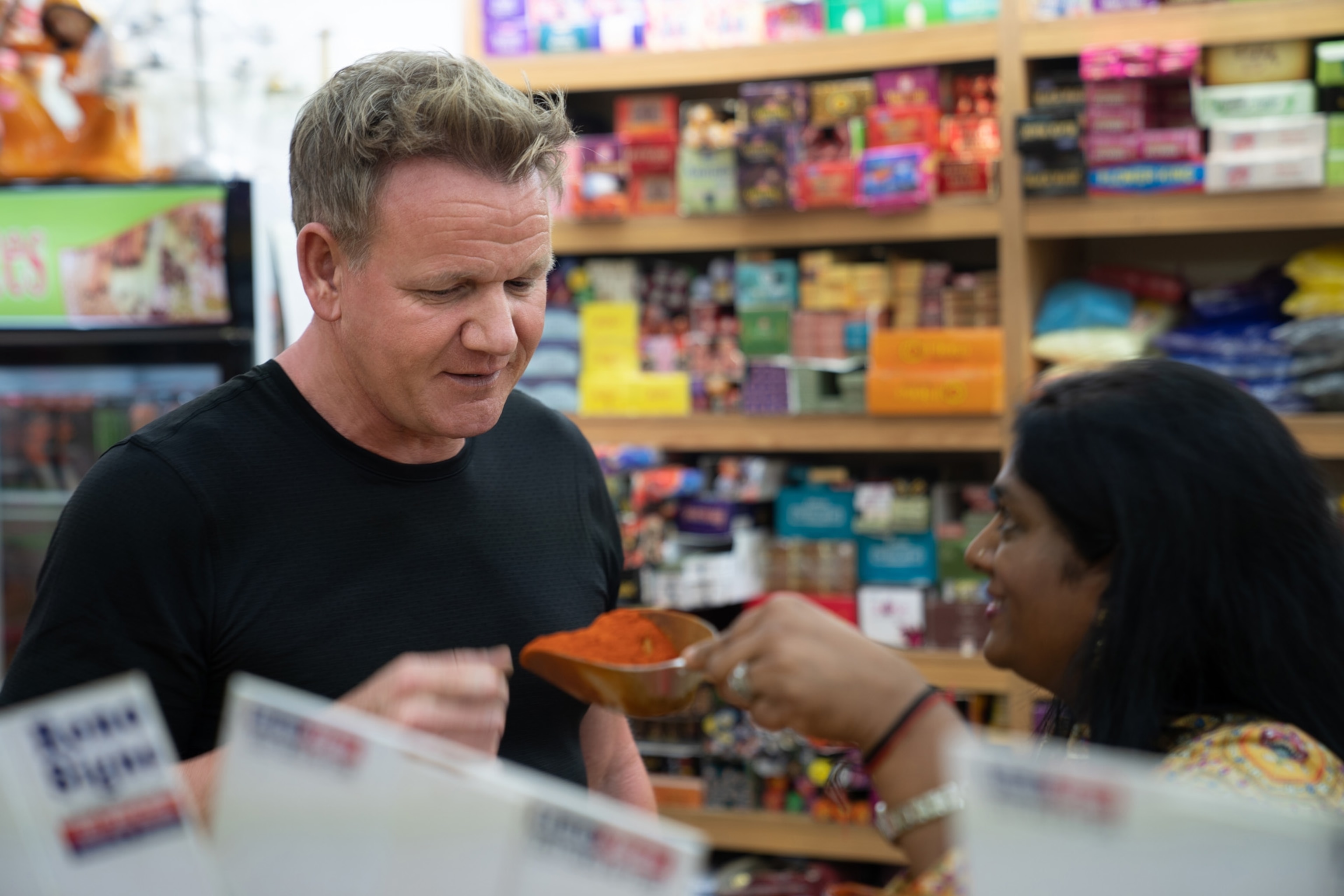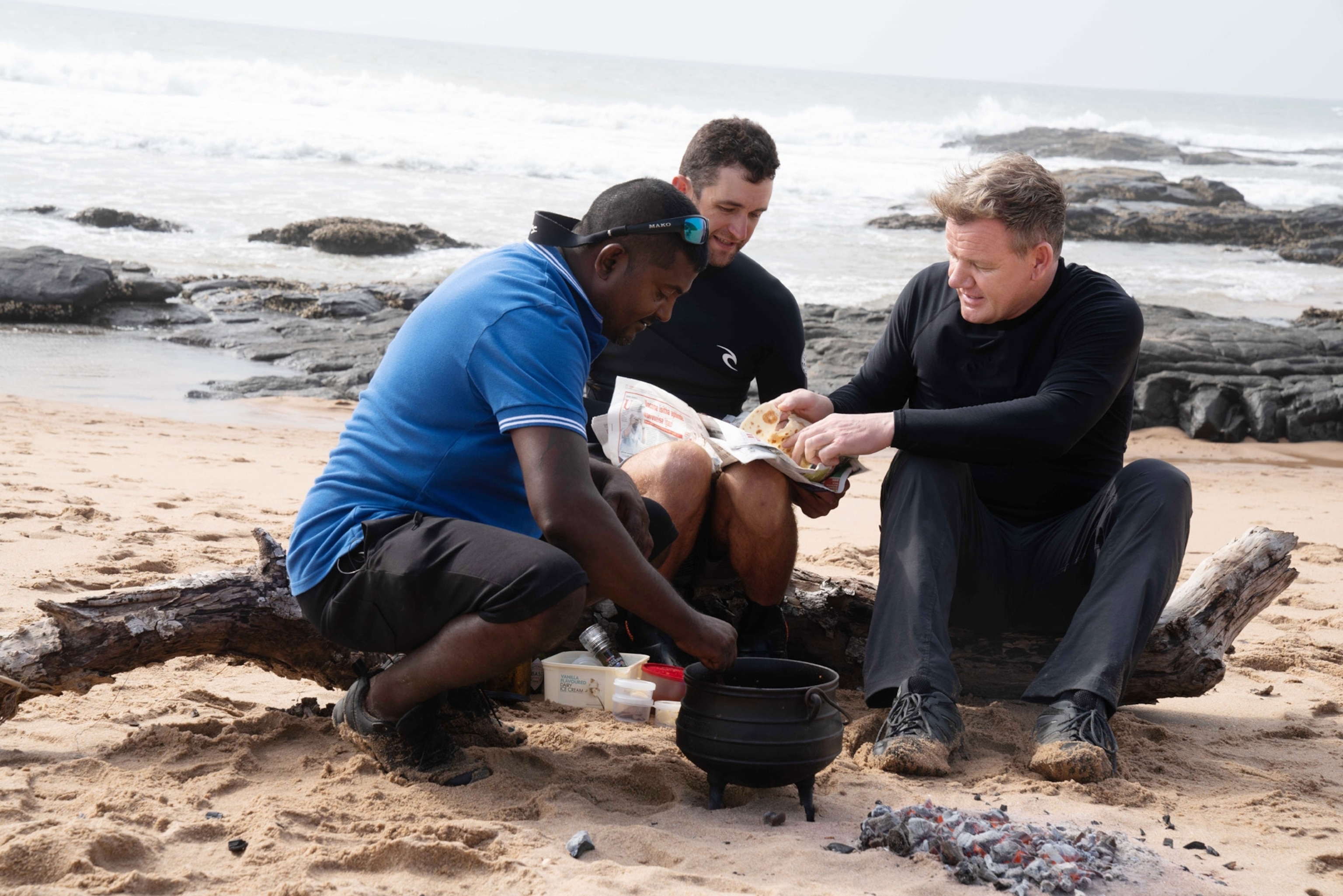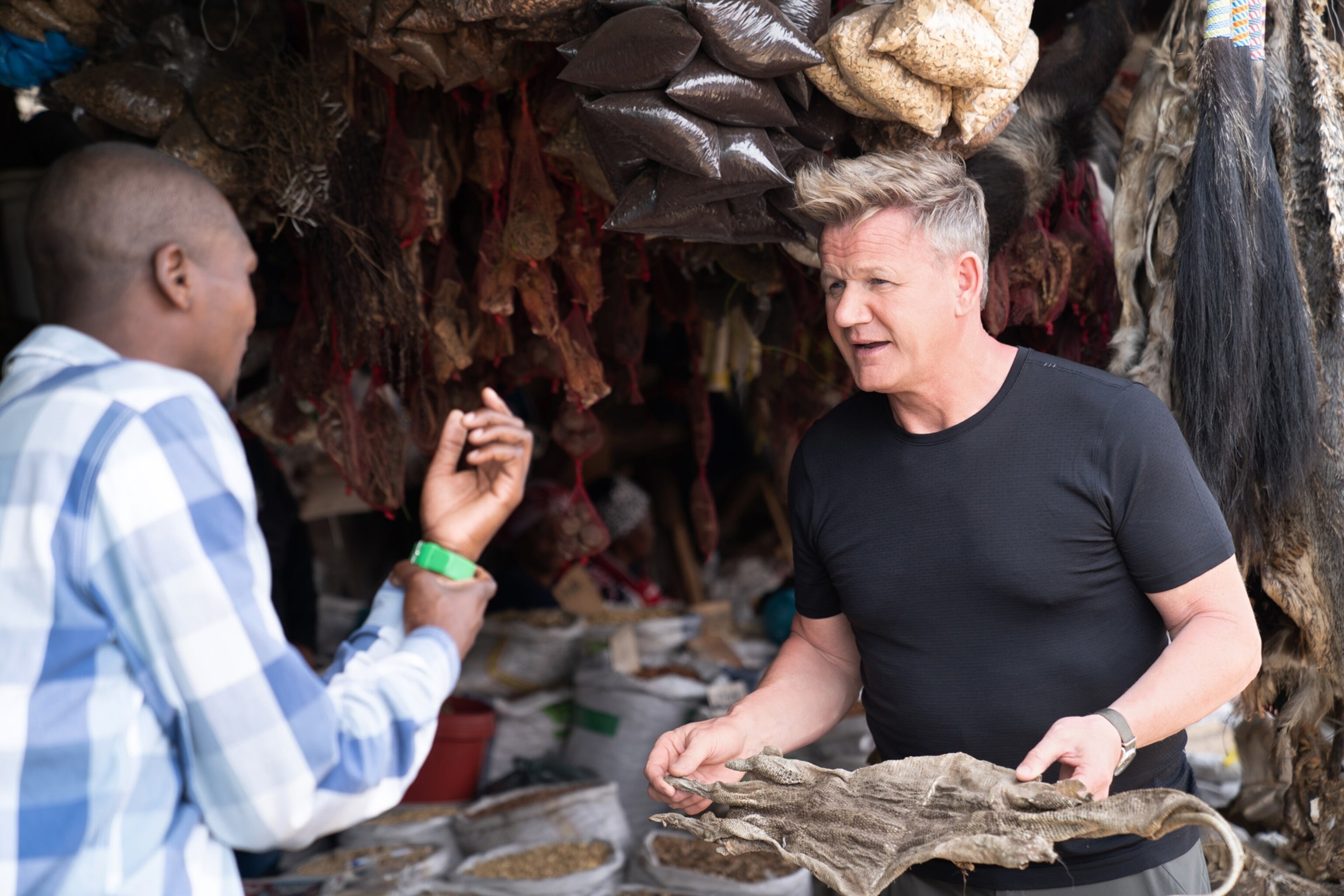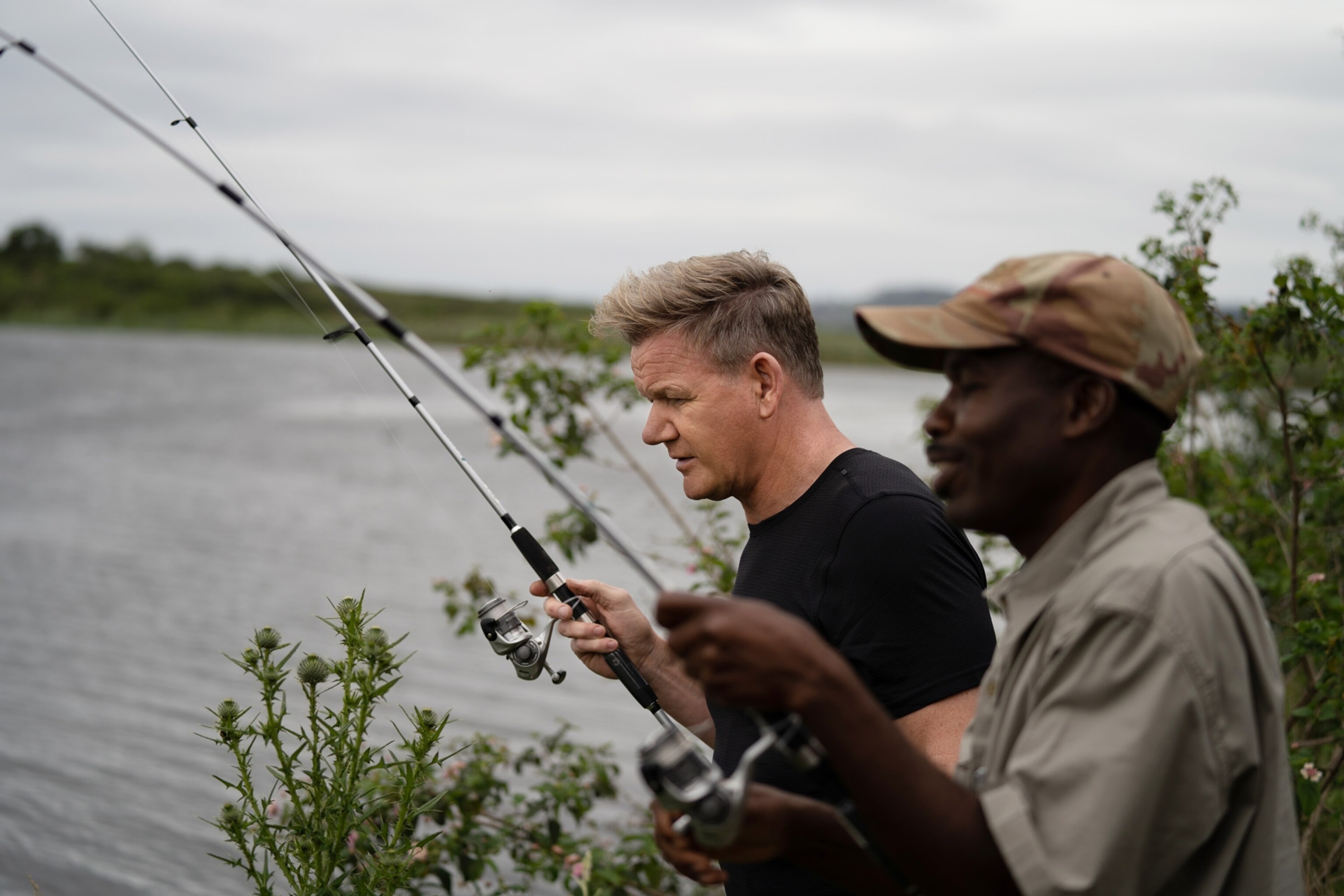Gordon Ramsay Adventures in South Africa's KwaZulu-Natal
In the ancestral land of Zulu warriors, Gordon learns how the simplicity of South African cuisine is inspired from a wealth of cultures.
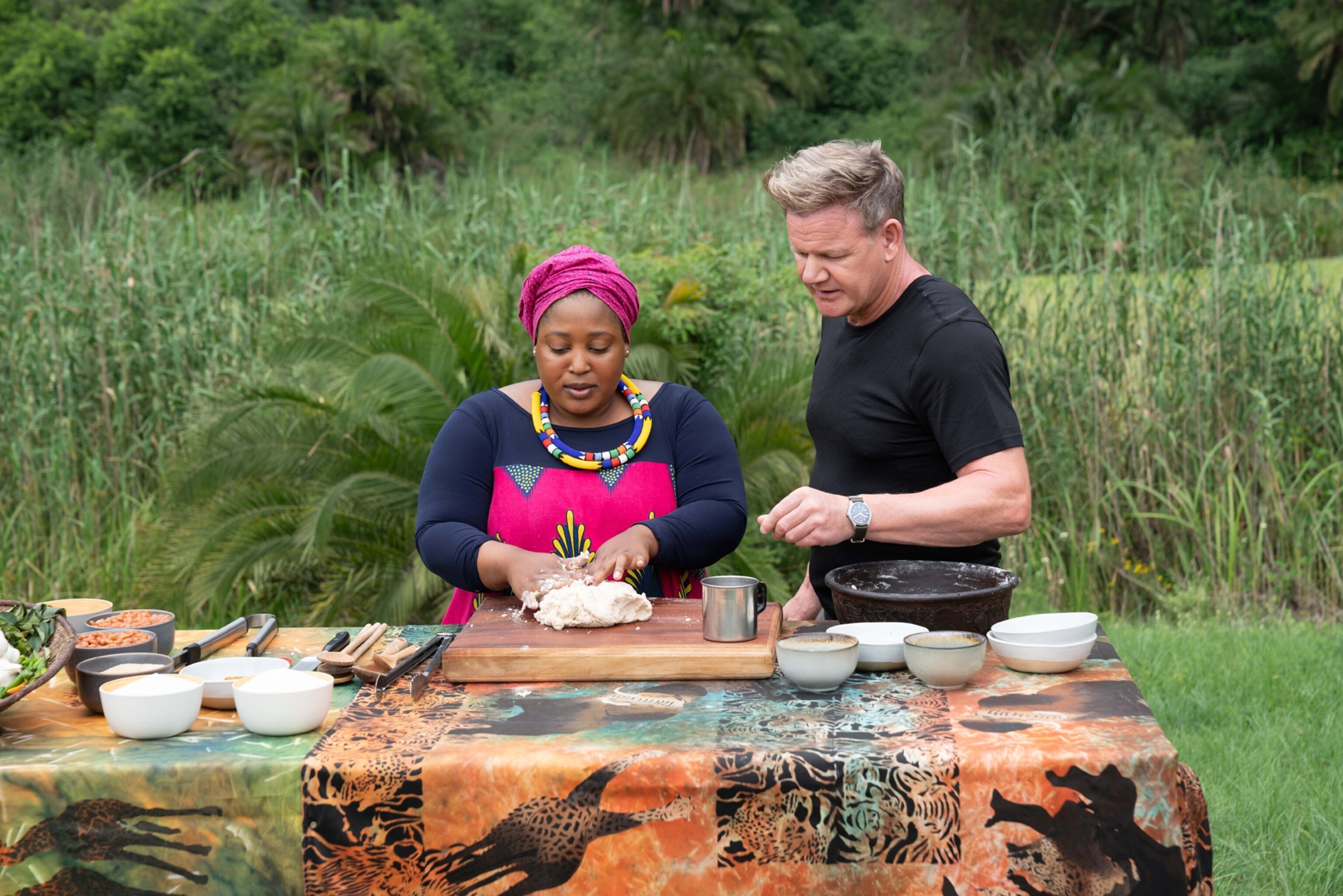
Fishing for bass in a South African lake, Gordon Ramsay can’t take his eyes off a hippo that’s far too close for comfort. “Look at the size of that thing,” he says. “What kind of signs do they show when they’re angry?” Despite the behemoth distraction, he’s determined to not quit until he catches a fish to barbecue with Chef Zola Nene. But as the hippo exhibits increased dissatisfaction with its human interlopers, Ramsay realizes the clock is ticking.
KwaZulu-Natal (often referred to by its shorthand, KZN), a province occupying the southeastern portion of South Africa, is the ancestral land of the Zulu people. Agriculture and farming have played a principal role in Zulu culture, and the region’s cuisine is still very much influenced by tradition. Due to historical agricultural methods, many foods in Zulu cuisine are organic and don’t require extensive processing, letting the ingredients speak for themselves.
Zulu people are traditionally cattle farmers, as well, so meat like beef, goat, and lamb cooked over an open flame in the outdoors is the quintessential South African way of eating. Nene, a chef, TV personality, and cookbook author, has made it her mission to bring the flavors of her ancestors to the rest of the world.
“Braai, or cooking over an open fire, is how Zulu people used to cook traditionally in ancient times, and still today,” Nene says. “The cuisine is simple, but very important, and it’s one of the things that unifies all our different cultures because cooking outdoors is something that all the cultures in South Africa do in some way.” While braai is Afrikaans for “barbecue” or “roast,” the deeper practice started long before the Dutch settlers arrived in the 17th and 18th centuries.
The metaphorical mixing pot of influences, due to the country’s political and colonized past, includes Zulu warriors, Dutch settlers, British colonists, and Indian laborers. KZN has the largest population of Indians outside of India, and the strong ties that these South Africans have to their traditional Indian roots have brought a diverse addition to the regional cuisine. A salsa dish like ushatini (with chopped onions, tomatoes, and chili) and a township classic like chakalaka(with onion, peppers, carrots, tomatoes, baked beans, and curry powder) each illustrate the incorporation of Indian spices with local dishes. Even a spice blend like the pelepele (“chili” or “pepper” in the Zulu language) that Ramsay uses for his steaks shows how integral Indian ingredients are in this region of South Africa.
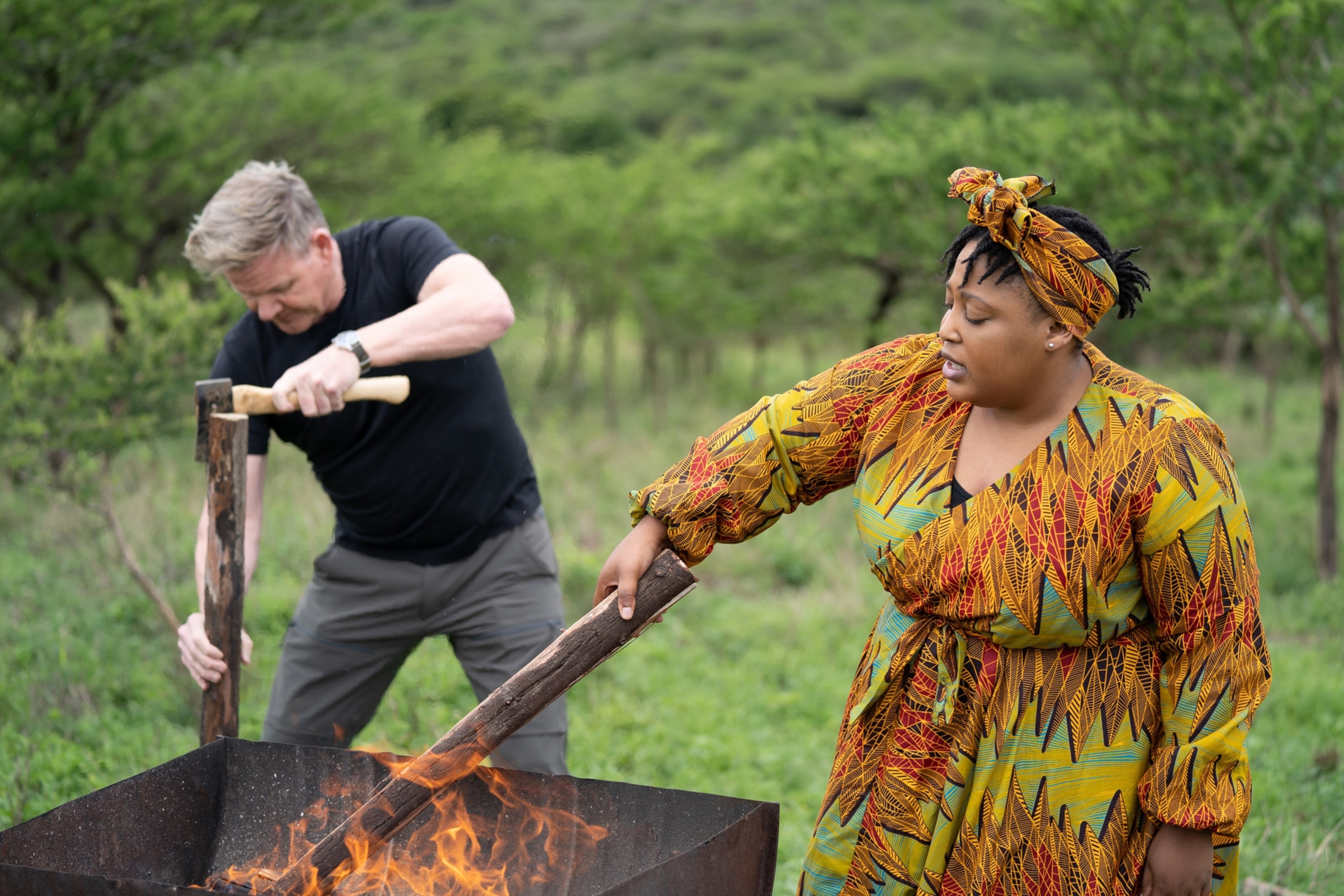

Despite its diversity, “peeling back those layers and understanding the simplicity of the cuisine is instrumental,” says Ramsay, after cooking with Nene next to another hippo-occupied waterway. And since it’s the goal of Uncharted to highlight indigenous ingredients and cooking techniques, Ramsay enjoys the challenge. “It’s been an amazing week for me getting up to speed on the Zulu culture, and understanding that level of respect for the produce and cooking with such humble ingredients. From a chef’s point of view, it’s super religious for me.”
